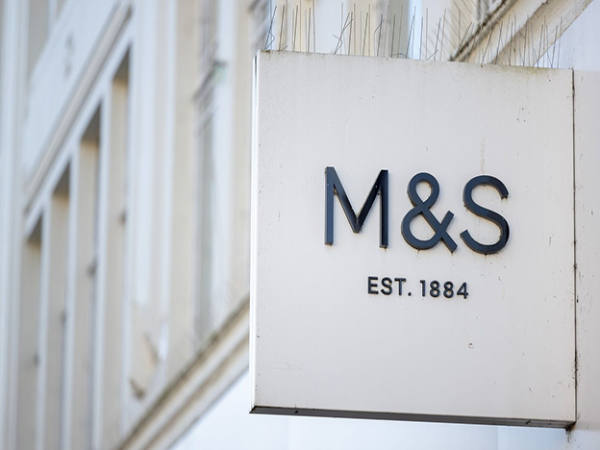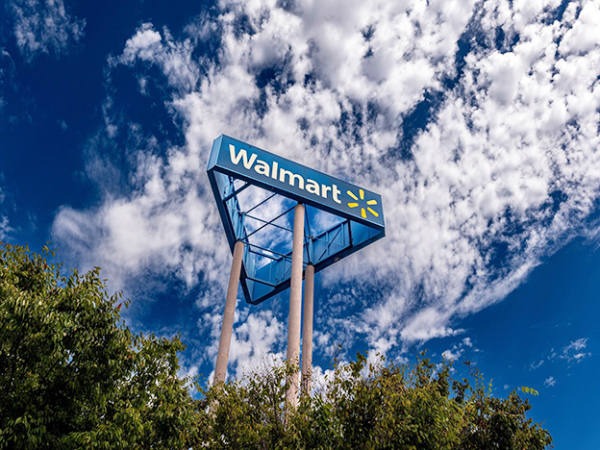- Gambling and gaming revenues are growing at 11 per cent a year
- Largest market is the US – but investors need to own the right stock
- Emerging markets (and foreign stocks) offer compelling opportunities
Gambling and gaming (gaming is about games of chance while gambling is deemed to have at least some skill required) is big business everywhere, with a global market value (measuring the total amount wagered) in 2022 of c$450bn, a figure forecast to rise by a compound annual growth rate (CAGR) of more than 11 per cent to 2030, when the value will exceed $750bn.
In 2021, only around $60bn was online gambling, but rising steeply. This is nearly 1 per cent of global gross domestic product (GDP) and 26 per cent of the world’s population are thought to be gamblers. This is a major industry even where gambling is technically illegal or at least subject to tight regulation. In China it is illegal to place a bet, yet China still has the world’s second-largest gaming industry worth around $70bn. However, per head of population, this equates to just $50.
The largest market is the US, despite (as we discuss later) online gambling until very recently being illegal and the industry being subject to somewhat quaint, archaic and out-of-touch rules. The gross value of the industry there varies considerably depending on your source, whether lotteries ($100bn) are included and if you count native reservation casinos (around $40bn), but it adds up to around $150bn, or $250bn including state lotteries. Today, of this, only around $9bn is online.
The UK is the global number five, with an industry worth around $19bn (again including the state lottery) or less than $300 per capita. Other leading nations include (perhaps surprisingly given that cash prizes are illegal) Japan at number three ($50bn although notably the prize-free pinball game Pachinko is four times larger in machine revenues), Italy at number four ($20bn) and one of the heaviest gambling nations, Australia, at number six. There, gambling revenues are of a similar size to the UK but for a population 60 per cent smaller.
The legality and regulation of gambling varies considerably by nation and, while some countries are looking to tighten rules (especially online as many countries’ regulations have not kept up with the online transition and money laundering can be a major problem), in others – most notably the US – gambling has become easier.
Types of gaming
For us in the UK, the first image that probably comes to mind when thinking of a gambling outlet is a somewhat grim-looking high-street betting shop or, for the more well-heeled, perhaps a casino. While these outlets still exist in large numbers, they are really from the industry’s bygone era; today, the epicentre of gaming is online via apps.
Online gaming is growing rapidly and in-person (sometimes called retail) gaming is in a state of slow decline. Online is more attractive for gaming companies as it is much cheaper to operate, can run 24/365, is much easier to evolve in order to keep enticing the punters, has a better public perception (casinos are elitist while betting shops are slightly shady), and operators have found it easier to keep customers engaged for longer, ie people spend more money. Online in most markets has more of a skew towards gaming (slot games or other games of chance) are also more appealing to operators as they have ‘managed’ odds (sports betting odds need to be determined by experts) and shorter intervals typically between plays.
There are several core modes of gaming or gambling, which cover in-person and online:
Casino games or slots: ‘fruit machines’ historically dominated casual gambling (in pubs, clubs, motorway stops or on ferries), but this has evolved into more complex virtual gaming mimicking TV quiz formats and casino games such as roulette or Black Jack (‘table games’) as well as fruit machines (‘slots’). Physical machines remain, but are rapidly being replaced by virtual (computerised) versions of the same, and played mostly on mobile devices. It is even possible to play online against physical roulette tables or with human card dealers – this is seen as the premium end of the market. In-person casinos remain relatively rare in the UK, but in other markets (especially the US and Macau, China) they remain a significant element of the total market. In the UK, casinos are still seen as somewhat elitist while in the US (think Vegas) casinos are mainstream.
Sports betting: historically, primarily horse racing at the trackside or in a high-street betting shop, but today football is more dominant (the US naturally favours its own sports), and primarily online. Sports betting has also allowed operators to offer far more esoteric bets (number of corners, nationality of the first player to be yellow carded etc etc) rather than simple outcomes or match scores. This has materially broadened the scope of sports betting.
Lotteries: mainly run by national and regional governments, these are a quasi-tax-raising mechanism with proceeds often going to ‘good causes’ but as often simply going into the overall tax pot. These typically offer by far the largest prizes, and for the smallest stake: in 2022, a prize to a single person on the US Powerball lottery was $2.05bn on a $2 ticket. The UK lottery has not been as successful as initial hopes in the mid-1990s, with jackpots ranging from £4mn to £14mn, or compared with the scale of others such as the Euromillions (top prize ever €230mn).
The UK gaming market
The go-to for information on the UK sector is the government body, The Gambling Commission, which provides micro-analysis of all gambling in the UK. Here we discover that gambling was, in 2022-23, a £14bn industry or £9.5bn if we exclude the various net lotteries. It is estimated that some 44 per cent of the population gambles, although for many this is just the UK Lottery. Gambling is today predominantly done online, which accounts for more than 75 per cent of total stakes (£6.8bn). Online gaming was also given a major boost by the pandemic, with high-street shops, bingo halls and casinos closed, plus overall spending on gaming increased materially in 2020 and 2021 as people found themselves with time on their hands.
The story of the gaming UK industry has been one of consolidation, with today essentially only five players dominating the market and owning or operating the high-street names and the big online names (such as Sky Vegas, Mr Green and 32Red). These are 888 (888), Flutter Entertainment (FLTR), Entain (ENT) and Rank (RNK) in the listed arena, along with one of the UK’s largest private companies, Bet365, which is owned by the Coates family and has consistently ranked as the number one in online gaming. This consolidation is because the UK, while being the most advanced and sophisticated online gaming market, is fairly mature, and the whole industry only growing at a little more than GDP. Online is doing better but high-street gambling is a withering segment. The key attraction for investors in the UK operators is their substantial positions in the US market.
The US gaming market
The US gaming market is going through a structural change. There has been a long and complex history, with moves to outlaw and/or restrict gaming, the most comprehensive being the Professional and Amateur Sports Protection Act (PAPSA) which imposed a federal ban on ‘off-track’ sports betting. Online gaming was also for a long time illegal under the Wire Act and otherwise prohibited as it typically involved interstate transactions. In 2018, the Supreme Court overthrew PAPSA and passed the decision on legality to each state; this has led to explosive growth in sports betting, heavily skewed to online which is forecast to grow at a CAGR of more than 15 per cent.
While sports betting was largely illegal, gambling has long been a major sector in the US, with casinos (where legal), trackside betting, tribal reservation casinos and – by far the largest segment – state lotteries. Casinos are now also popping up across numerous states.
While the largest operators in the US are domestic (MGM Resorts and Caesars are number one and two), UK players have a more than decent toehold. The only way for overseas operators to enter the market is via joint venture or outright purchase of locals because, despite liberalising online gaming, to be allowed to operate you have to own a physical gaming (mainly casino) footprint in the state in which you operate.
Other markets
The gaming industry will tend to follow the path of least resistance and grow in less regulated markets (such as Australia) or where regulatory frameworks are dismantled (as in Germany). In North America, for example, liberalising in the US has robbed customers from its immediate neighbours in Canada and Mexico.
Investors can find some interesting stocks in other locations such as the listed French national lottery operator Française des Jeux (FR:FDJ), Australia’s Aristocrat Leisure (AU:ALL), a leading global manufacturer of gaming machines, or Sweden’s Evolution Gaming (SW:EVO). Africa has a lot of online potential, echoing very rapid growth in other app-based new industries.
The problem with gambling
The perpetual problem with gambling is how the industry deals with the problem gambler. This is increasingly the focus of regulation, but can be a losing battle as while governments can have oversight of legal and licensed outlets, there is almost always a substantial illegal industry running in parallel. There is a long history of overly tight regulation causing illegal betting to expand. So many governments prefer to have lighter-touch regulation to suppress criminal activity but also with a keen eye on the tax take – and as with smoking it is unlikely that any governments will move to ban gambling outright.
The UK gaming White Paper
At the end of April 2023, the UK government published a White Paper (‘High stakes: gambling reform for the digital age’), looking to review the 2005 Gambling Act – regulations that still look primarily to control in-person and retail gambling. The industry had been expecting, and preparing for, the new regulations for at least the past three years.
The main thrust is to limit financial harm to problem gamblers via a new gambling ombudsman, mandatory affordability checks for online gambling, stricter requirements for age and identity verification, and lowering maximum stakes for online games.
A concern for operators is that ‘problem’ gamblers have long provided a significant amount of the industry’s income, and there has already been a noticeable dip in revenues for UK subsidiaries as the new rules loomed. This may have rattled investors, but with the UK no longer the growth engine (that is now the US) this tightening of the regulations should not, by itself, turn investors away from this sector. The investments made in the US have a great deal to offer, and because operations there have been ramping up since the end of PAPSA, there has not yet been much profit or free cash impact. This is about to change.
Tangential sectors
In addition to looking at direct operators, investors can also take a more tangential look. Playtech (PTEC) and International Game Technology (US:IGT) are examples of businesses that create game software and operate gaming platforms or engines that allow smaller operators, start-ups or other brand owners to enter the gaming market by licensing their IP. It is often interesting to look at these ‘picks and shovels’ businesses attached to any large industry.
In our next article, we will look at stocks, starting with UK-listed, which will involve a more detailed look at the impact changing regulations are having on the key US market.










